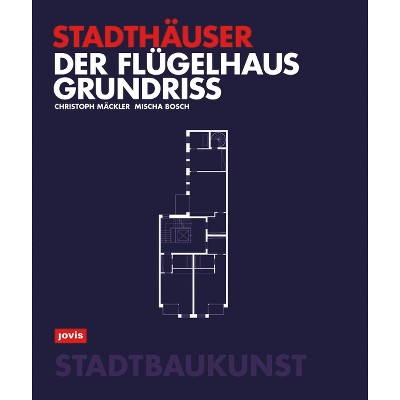About this item
Highlights
- The poor living conditions of 1920s Berlin were driven and compounded by population growth, housing scarcity, and profiteering.
- About the Author: Angelika Hinterbrandner works across a number of different roles and formats in the field of architecture.
- 192 Pages
- Architecture, Individual Architects & Firms
Description
Book Synopsis
The poor living conditions of 1920s Berlin were driven and compounded by population growth, housing scarcity, and profiteering. Like today, many architects in the Weimar Republic sought to identify solutions for the housing crisis. Alexander Klein was one of them. His design method, which unites considerations of cost-efficiency, hygiene, usage, and comfort, is based on an analysis of the economic and legal foundations of housing construction. Building on a thorough examination of housing floor plans, he developed a systematic approach for creating high-quality living spaces with limited resources. Angelika Hinterbrandner illuminates the development of Klein's methods and draws parallels with the challenges of housing scarcity today. What can Klein's approach teach us?
- A rediscovery and reinterpretation of Alexander Klein as a pioneer of small apartment design
- Offers a comprehensive analysis of Klein's 1920s design methodology and of the parameters relevant to building apartments today
- Includes perspectives on AI-supported floorplan optimization, apartment construction, and housing legislation
About the Author
Angelika Hinterbrandner works across a number of different roles and formats in the field of architecture. Her work focuses on strategies and methods for promoting a move towards socially just building construction, as well as political, spatial, and social transformation processes. She has been teaching at ETH Zürich since 2021. Additionally, she is an editor for the digital architecture magazine Kontextur and co-founder of the spaceforfuture.org initiative. Since 2024, she has been a scientific advisor working on building policy for a Member of the German Parliament.












